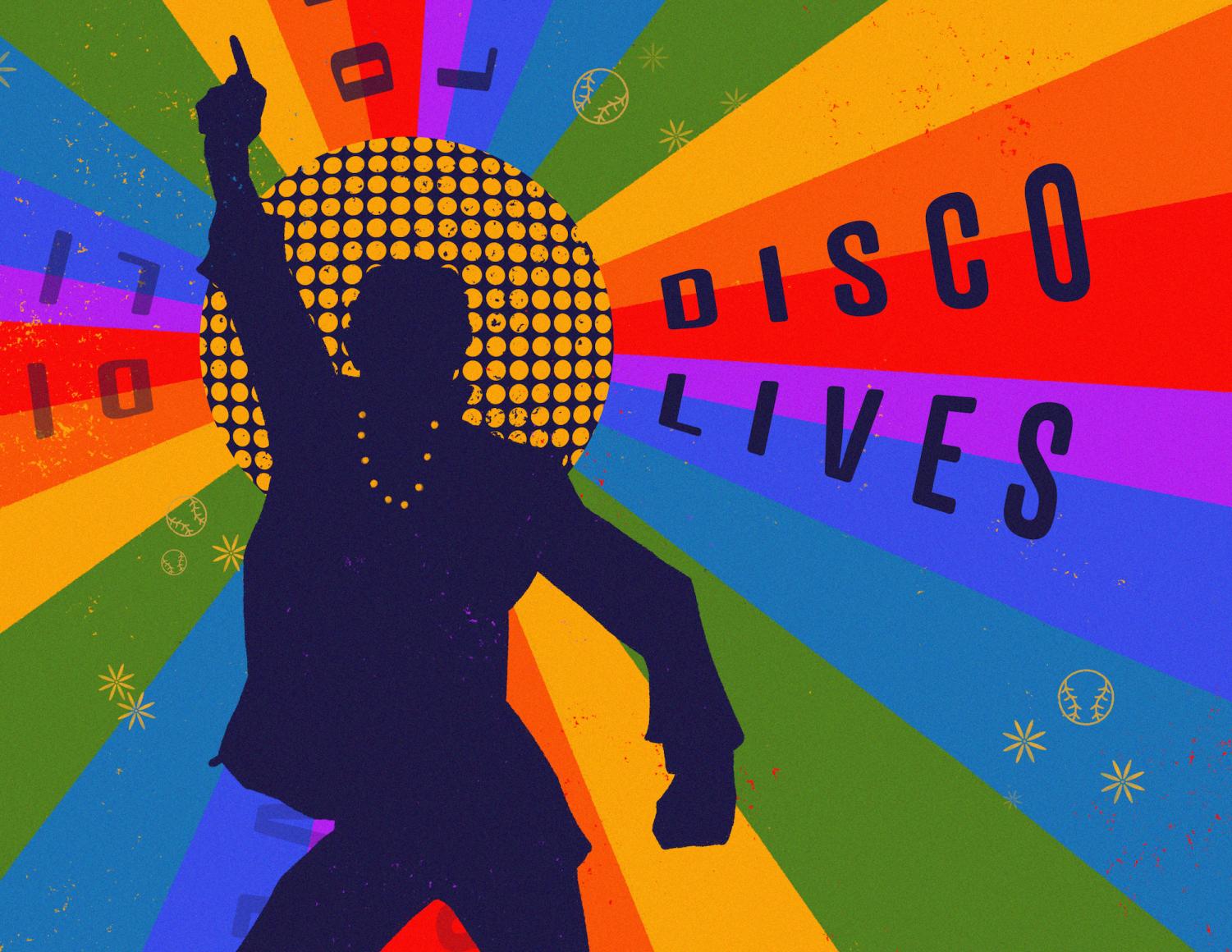OPINION: Commemorating White Sox Disco Demolition destructive
June 20, 2019

What turned into mayhem July 12, 1979, was the blur of an evening coined Disco Demolition Night by its lead promoter Steve Dahl. Dahl was a disc jockey for rock radio station “The Loop” 97.9 FM, known for his staunch love of rock ‘n’ roll and his strong distaste for disco music. Even one of his gags on the show was to spin a disco record and proceed to scrape the needle across it while it played.
Chicagoans were invited and urged by Dahl to come and join him on his mission to kill disco once and for all. That evening, tickets sold for 99 cents if you brought a record to the White Sox stadium. The plan of attack was to gather as many disco records as they could, fashion a pile of the vinyl and blow it to pieces.
The explosion, as audience members recalled, was unlike anything they had ever seen before. “There was a crater in center field,” said 1979 Sox outfielder Rusty Torres in an interview with ESPN.
Dahl himself knighted the event “the world’s largest anti-disco rally.” The stadium was a madhouse, and following the explosion, even madder. The damage to part of Comiskey Park’s field forced the Sox to forfeit the second game of a doubleheader versus the Tigers.
What was so pressing about disco, or rather so fleeting about rock ‘n’ roll, that Dahl and his cronies felt it important to condemn an entire genre of music and its fan base?
Rolling Stone’s critic Dave Marsh would pen a summary of 1979, published by Rolling Stone December 27, 1979, which would dub men like Dahl to be “the most likely to see disco as the product of [LGBTQ, black and Latino people], and therefore they’re most likely to respond to appeals to wipe out such threats to their security.”
It became crucial to look back on the polarized feelings about this evening when the White Sox organization announced it would be commemorating the demolition night by having a free T-shirt giveaway at its home game June 13. When this decision was made public, it immediately faced backlash from those who opposed the original Disco Demolition Night.
Twitter users marched onto the scene with tweets referencing the Disco Demolition Night as an event that was “countercultural” and even “the original Straight Pride Parade.”
Dahl disagreed: “Perception is not always reality. Especially when that perception uses the prism of today to look at events 40 years ago,” as reported by The Chicago Tribune June 12.
The prism of today’s modern culture is necessary when considering the longevity and reintroduction of past events. When history comes back around, critique is the best way to move forward and learn from it. Die hard fan or not, there is no excuse to impose pigeon-holed taste onto others and claim it spectacle.
The White Sox organization issued a statement advocating for their position on the T-shirt giveaway. The statement closed by stating, “We remain proud of our franchise’s longstanding record on advocating for inclusion and diversity.”
In the interest of the White Sox, an organization with deep roots in the city, it was not only unwise to commemorate an event such as this, but it is also a short-sighted decision while looking in the rear view mirror. Chicago history is known for its deep and troubled past with people of color and the LGBTQ community—two communities that founded disco music. The upheaval of an event buried in nearly 40 years of upward progress and renewal is some kind of twisted relapse into what is familiar and shoddy.
The claim is that this evening encapsulated the cultural landscape of the time. If there was something to be done on behalf of Disco Demolition Night, could it not be more uplifting? The Sox are no strangers to introducing giveaways or other enticements in order to draw a crowd, but the organization could have made it more beneficial to the communities they claim to support. In the midst of Pride month, wouldn’t it be more fitting to offer proceeds to the LGBTQ community? The same can be said for people of color and their communities. Instead, 10,000 visitors to the now-named Guaranteed Rate Field walked away with shirts that paint a picture of a time that isn’t all that far away from us. Remembering Disco Demolition Night may have been a gimmick to get more fans in seats, but its commemoration dredged up more than it bargained for.







